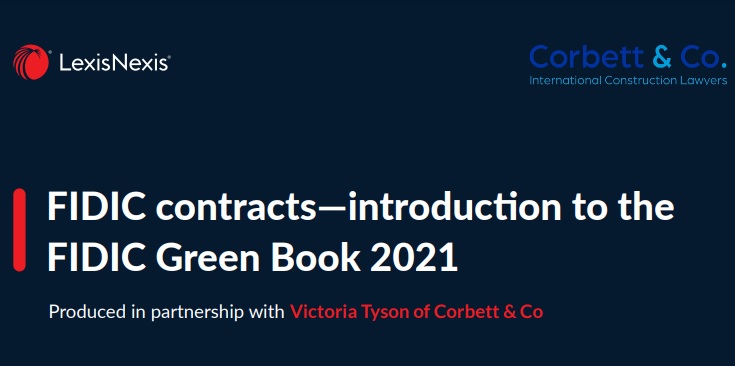Clause 20 – Employer’s and Contractor’s Claims
Written by Gabriel Mulero Clas |
January 27, 2018
The 1999 Clause 20 has now been divided into Clauses 20 and 21 whereby Clause 20 refers to Claims and Clause 21 refers to Disputes and Arbitration. Another main upgrade is that Employer’s Claims now need to follow the same procedure. The main list of Employer’s and Contractor’s Claims is as follows:
- Additional payment;
- Reduction in the Contract Price;
- Extension of the DNP; and
- Extension of time.
Another main difference is the express distinction between the Claims listed above and any other Claim (Sub-Clause 20.1 (c)). The other Claims still need to be determined by the Engineer under Sub- Clause 3.7, though they do not need to follow the strict requirements of the Claims procedure explained below. The starting point of the other Claims is not the event or circumstance, but the disagreement between the parties. The Notice only needs to be given as soon as practicable from this point and contain details of the Party’s case and the disagreement. The Notice is the only requirement for the Engineer to issue its agreement or determination under Sub-Clause 3.7.
On the other hand, the main Claims must follow a Claims procedure (Sub-Clause 20.2) consisting of a Notice of Claim, a fully detailed Claim, and the Engineer’s agreement or determination (pursuant to Sub-Clause 3.7). This has not changed from the 1999 edition but the details of this procedure have. More importantly, the content requirements that carry time-bar implications are rather specific.
These requirements are:
| Notice of Claim | Fully detailed Claim | |
| Time | As soon as practicable and within 28 days after becoming aware (or should have become aware) of the event or circumstance. | Within 84 days after becoming aware (or should have become aware) of the event or circumstance, or as agreed by the Engineer. |
| Contents | Written description of event or circumstance, expressly identified as a Notice. | A statement of the contractual and/or other legal basis of the Claim. |
If the Party fails to serve either the Notice of Claim or the contractual/legal basis in the fully detailed Claim within the allotted time, the Notice will be deemed invalid and the Claim is time-barred. For the time-bar to bite, the Engineer must give Notice to the claiming Party within 14 days of (a) receiving the Party’s Notice or (b) the lapse of the 84 days for the fully detailed Claim. If the Engineer fails to give either Notice, the Party’s Notice of Claim shall be deemed valid. Nevertheless, the other Party may, in turn, give a subsequent Notice disagreeing with the deemed validity, in which case, the Engineer shall review the issue in its determination. More importantly, if the Engineer issues its Notice deeming the Notice of Claim invalid, the claiming Party may include in its fully detailed Claim details of its disagreement or justification of the late submission. Even if a 14-day Notice has been issued, the Engineer shall nevertheless agree or determine the substance of the Claim pursuant to Sub-Clause 3.7 and include a determination on the validity of the Notice.
Therefore, the 2017 edition has added a time-bar on the fully detailed Claim but has tempered this with the opportunity for the claiming Party to object to the time-bar. The claiming Party can either argue that the Notice of Claim or the fully detailed Claim were served within their time limits or submit a justification for its delay. The Engineer may consider prejudice to the other Party and prior knowledge by the other Party. However, considering that the content requirements for either the Notice of Claim or the fully detailed Claim are so simple, it is hard to think of a justifiable reason why anyone would be late apart from the usual difficulty of identifying the start of the period. It will probably be easier to argue that the Notice was not in fact served late, perhaps by basing the argument on Mr Justice Akenhead’s Obrascon judgement.
Also, the Notice does not need reference to the Sub- Clause on which it is based. However, as mentioned above, the fully detailed Claim requires a statement of contractual/legal basis. With such scant content requirement at each stage, it is arguable that the fully detailed Claim is little more than a second Notice of Claim. An Engineer will struggle to reach a determination of a claim based solely on a light description of the event or circumstance and the contractual/legal argument behind it. On most claims, the Engineer will need more details of the cause and the effect of the Claim in order to reach a sensible determination. Therefore, the 2017 edition may give rise to Parties submitting scant Notices and Claims followed by requests from the Engineer for additional particulars.
Furthermore, Sub-Clause 21.6 states that Parties will not be limited in the arbitration “to the evidence or arguments previously put before the DAAB […] or to the reasons for dissatisfaction given in the Party’s NOD […]” Therefore, it appears that in the arbitration stage the Parties can change the contractual/legal basis of their Claims. Could the other Party argue that it may be prejudiced if the contractual/legal basis is changed? Surely not if the arbitrator can decide on the Claim based on arguments that have not been put forth at the DAAB stage. Therefore, it is difficult to see why specifying the contractual/legal basis at the fully detailed Claim stage is so important.
Other items:
- Contemporary records – Parties are ordered to keep contemporary records of the Claim, and the Engineer may monitor and inspect these records and instruct the Contractor to keep additional records.
- Additional particulars – Additional particulars are requested by way of Notice describing them and the reasons for requiring them. The Engineer must issue a response on the contractual/legal arguments within 42 days and then its agreement or determination once it receives the additional particulars.
- Continuing effect – For Claims with continuing effect, the fully detailed Claim is interim and the Party must serve further interim particulars at monthly intervals. These interim particulars are not subject to the time requirements that apply to the first fully detailed Clam.
- IPC – Until a Claim is agreed or determined, IPCs must include the amount that has been reasonably substantiated as due.
- Set-off – Employers can only set off against or make any deduction from amounts due to the Contractor if they follow the claims
Gabriel Mulero Clas is a Lawyer at Corbett & Co. International Construction Lawyers Ltd. He can be contacted at gabriel.muleroclas@corbett.co.uk
The contents of this article should not be treated as legal advice. Please contact the lawyers at Corbett & Co before acting on or relying upon anything stated in this article.
Clause 20 – Employers and Contractors Claims by Gabriel Mulero Clas.


